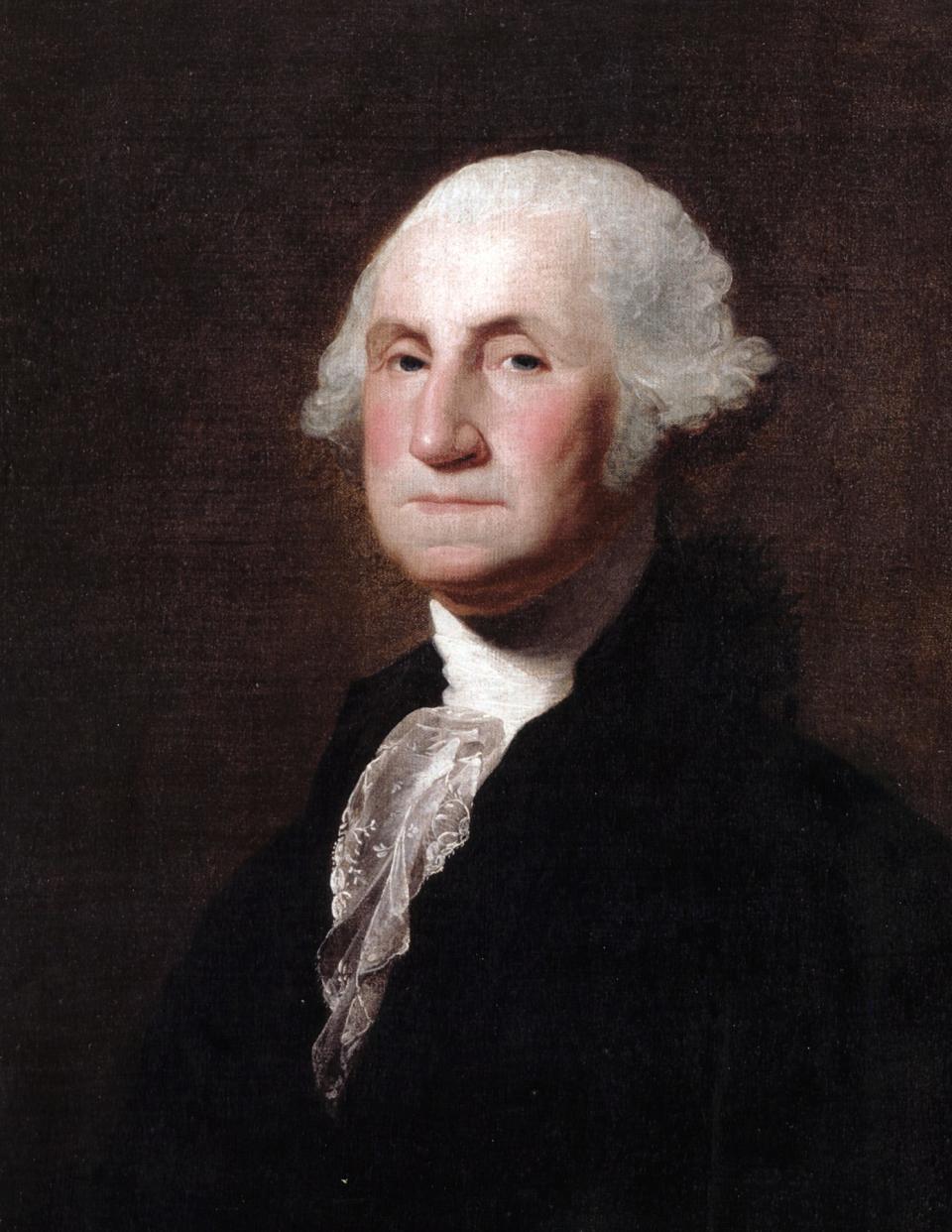Go out and shop the Presidents Day sales. It's what George Washington would have done!
Presidents Day, like most American holidays, is a celebration of shopping. But unlike holidays such as Christmas or Thanksgiving, where the commercial spirit is a corruption of the holiday's true purpose, Presidents Day honors a man who truly loved to shop: George Washington.
Washington was a world class shopper. Of course, he couldn’t ride his horse over to Walmart, and there was no Amazon Prime to deliver. Instead, Washington ran an account with a London merchant who sold his tobacco and then used the proceeds to buy the things he wanted. Washington placed his orders and then waited, sometimes up to a year, for his goods to arrive.
Despite the inconvenience, Washington was a regular customer. He bought a Macy’s worth of hats, shirts, coats, gloves, breeches, stockings and shoes and enough furniture, home decorations, cups, saucers, plates and glasses to rival an IKEA.
On one 1760 spree alone, Washington bought dozens of items, including 12 “beer and cyder glasses," 18 punch glasses, 24 wine glasses, six milk jugs and six china mugs. Plus, to catch all that liquid on the other end after drinking, “1 dozen stone chamber pots.”
Washington wanted to be fashionable
Living so distant from his supplier, Washington couldn't browse, and he certainly couldn't return things he didn't like. He usually wrote general descriptions of what he wanted and relied on the judgment of his agent across the pond.
However, Washington did make one demand, repeatedly, pointedly and emphatically. Whatever he selected, he told his agent, it must be fashionable.
On different occasions Washington asked for “a fashionable Cloke,” a chariot “painted of a genteel and fashionable colour” and “ten common sitting Chairs for an Entertaining Room — to be large, neat, and fashionable.”

A few months after marrying Martha in 1759, George ordered, in true Presidents Day spirit, a new bed “with fashionable blew or blew and white curtains.”
When requesting some new plates, Washington was direct: “Pray let them be neat and fashionable or send none.” It was the heart of his shopping philosophy.
Washington's tastes reflect more than an urge to be in vogue.
A disgrace to their legacy: Trump's lies and corruption disgrace presidential legacies of Lincoln and Washington
Colonial Americans lived on the edge of the British Empire and often felt anxious about their status. A proper tea set and swanky breeches helped them feel just as good as the most refined man in London.
The latest fashions were also vital for Washington to maintain his reputation as a gentleman.
Being a gentleman in the 18th century was more than a matter of birth, wealth or education. Coming from a good family, enjoying a comfortable income and receiving a degree from a college (preferably European, though Harvard or Yale might suffice in a pinch) all helped prove a man’s elite status.
The need to keep up appearances
But a true gentleman was a gentleman because he looked the part. He wore stylish hats and gloves, rode around in a tasteful carriage pulled by well-groomed horses and entertained in a genteel home. If Washington failed to display the trappings of a gentleman’s lifestyle, people might start to talk about that Mount Vernon guy who married a rich widow, didn’t attend college and never once set foot outside the colonies.
Shopping could be stressful, and Washington was sometimes frustrated. He went into debt buying stuff that didn't arrive for ages and sometimes didn't meet his expectations. Meanwhile London merchants, who never quite got the prices Washington wanted when selling his tobacco, harassed him for payment like a common debtor.
“I tell you that instead of getting things good and fashionable in their several kind we often have articles sent us that could only have been used by our Forefathers in the days of yore,” a suspicious Washington wrote his agent. “ ’Tis a custom, I have some reason to believe, with many shop keepers, and tradesmen in London when they know goods are bespoke for exportation, to palm sometimes old, and sometimes very slight and indifferent goods, upon us.”
Learning from the past: Washington and Lincoln worried about future generations, not tweets and public opinion
The experience was one factor that pushed the Virginian to wonder what the colonies' role in the empire really was. To pay high prices for Britain’s junk? Maybe independence to buy and sell on their own would be better.
Washington understood that shopping mattered, both personally and politically. The right objects shaped Washington’s sense of self and helped him think through the colonies' relationship with the mother country.
Presidents Day shopping, it turns out then, really does honor Washington. If you're heading to the mall or clicking around online, remember your first president and make your purchases fashionable.
David Head is a historian at the University of Central Florida and author of "A Crisis of Peace: George Washington, the Newburgh Conspiracy, and the Fate of the American Revolution." Follow him on Twitter: @DavidHeadPhd
You can read diverse opinions from our Board of Contributors and other writers on the Opinion front page, on Twitter @usatodayopinion and in our daily Opinion newsletter. To respond to a column, submit a comment to letters@usatoday.com.
This article originally appeared on USA TODAY: Presidents Day: Hit the sales to honor super shopper George Washington

